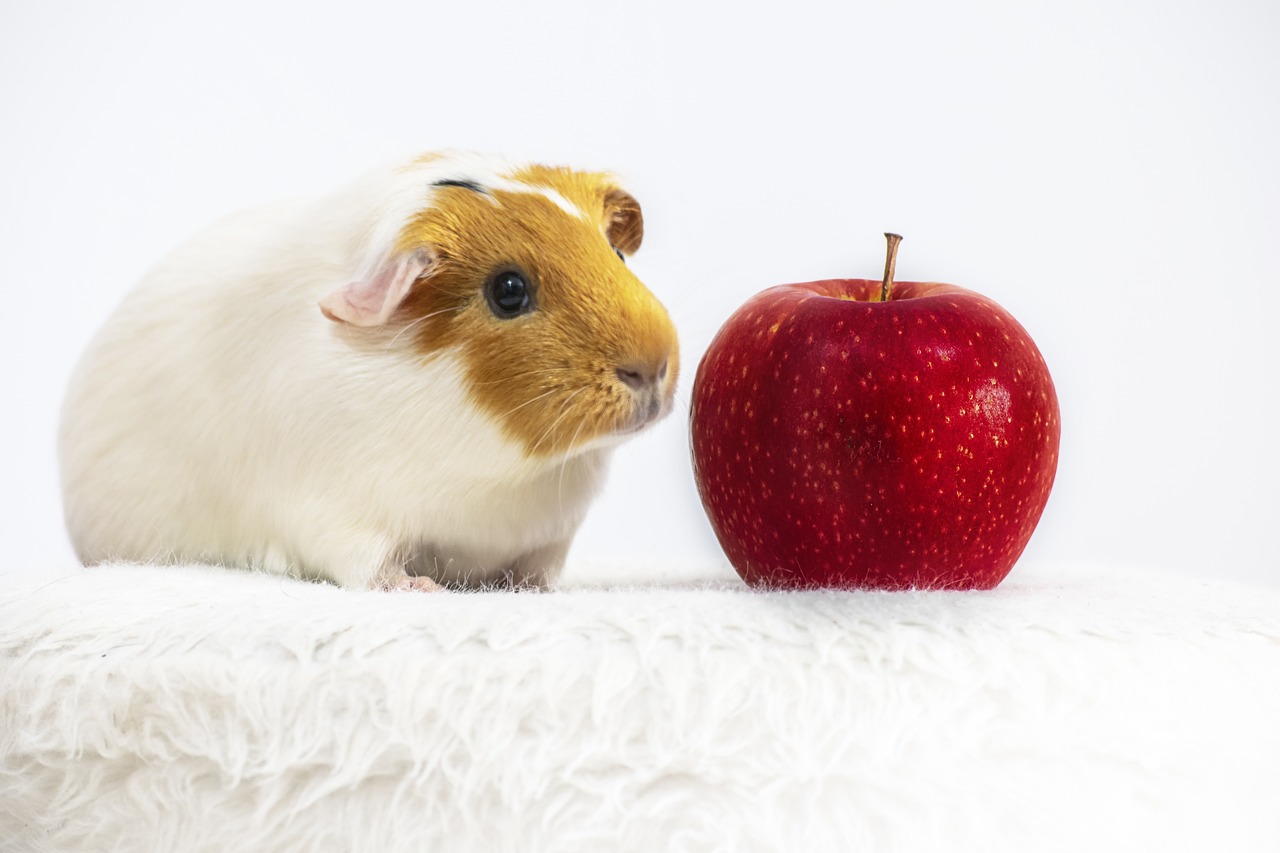Hairless guinea pigs, also known as skinny pigs, are a unique breed of guinea pigs that are missing most or all of their hair. These adorable creatures are born with a small amount of hair, but they lose it all within the first few weeks of their life. Without fur to protect their skin, hairless guinea pigs are more sensitive to the environment and require special care to keep them healthy.
One of the key differences between hairless and regular guinea pigs is their body temperature. Hairless guinea pigs lack the insulation provided by fur, which means they are more prone to getting cold. As a result, they require a warmer environment than regular guinea pigs. Pet owners should keep their hairless guinea pigs in a room that is kept at a constant temperature between 75-80°F.
Hairless guinea pigs also tend to have more sensitive skin. They are more susceptible to skin irritation, sunburn, and skin infections. Pet owners should be careful when handling their hairless guinea pigs and should avoid exposing them to direct sunlight for extended periods. Regular grooming is also important to prevent skin infections. Pet owners should gently wash their guinea pigs with a mild soap to keep their skin clean and healthy.
Overall, hairless guinea pigs make wonderful pets, but they require special attention and care to keep them happy and healthy. By understanding their unique needs and providing them with proper care, pet owners can enjoy the company of these adorable and fascinating pets for years to come.
Understanding Hairless Guinea Pigs
Hairless guinea pigs, often called Skinny Pigs, are a special breed of guinea pigs that lack most or all of their hair. This genetic mutation has made them a unique and popular pet choice for guinea pig lovers around the world. Though they don’t have the same grooming requirements as furry guinea pigs, Hairless guinea pigs still require specialized care and attention to keep them healthy and happy.
- Due to their lack of fur, Hairless guinea pigs are sensitive to temperature changes and can get cold easily. Make sure to keep their living environment warm and draft-free.
- They are also at a higher risk of developing skin irritations and infections, so a regular grooming routine is essential to keep their skin healthy.
- Furthermore, hairless guinea pigs require a specialized diet to meet their high metabolic needs. They need a diet rich in Vitamin C to help prevent scurvy and to support their immune system.
With proper care and attention, Hairless guinea pigs can live happy and healthy lives. As unique pets, they require a bit more effort and dedication than their furry counterparts, but the reward of their companionship is worth it.
Diet and Nutrition for Hairless Guinea Pigs
When it comes to the diet and nutrition of hairless guinea pigs, it is important to keep in mind that they have a higher metabolism than other guinea pig breeds. This means they require a specific diet to meet their nutritional needs and maintain a healthy weight.
It is recommended to feed hairless guinea pigs timothy hay, fresh vegetables, and a small amount of pellets. It is essential to provide your pet with fresh water every day and to avoid feeding them food that is high in sugar or fat.
One important thing to keep in mind is that hairless guinea pigs are more prone to vitamin C deficiency, so it is important to provide them with a diet that is rich in vitamin C. Feeding your pet fruits and vegetables that are high in vitamin C, such as bell peppers and kale, can help prevent this deficiency.
In addition to their diet, it is recommended to give hairless guinea pigs vitamin C supplements, either through a liquid or chewable tablet form.
Overall, it is important to consult with a veterinarian who is experienced with hairless guinea pigs to ensure that you are providing your pet with the appropriate diet and nutrition for their specific needs.
Grooming Your Hairless Guinea Pig
Hairless guinea pigs require regular grooming to maintain healthy skin and regulate their body temperature. Without fur to protect their sensitive skin, they are more prone to skin irritations and infections. To groom your hairless guinea pig, you’ll need to start by bathing them. Use a shampoo specifically designed for small animals and avoid getting water in their ears or eyes. After the bath, use a towel or hairdryer on a low heat setting to dry them off.
In addition to bathing, hairless guinea pigs require weekly ear cleaning and nail trimming. Use a cotton swab to gently clean the inside of their ears and avoid inserting anything too deep. For nail trimming, use small animal nail clippers and be careful not to cut their quick, which is the blood vessel inside the nail.
When grooming your hairless guinea pig, be sure to inspect their skin for any abnormalities or signs of infection. Look for redness, swelling, or flaking skin. If you notice anything out of the ordinary, consult with your veterinarian. It’s also important to keep your hairless guinea pig’s environment clean to prevent the buildup of bacteria or other harmful substances.
Overall, grooming your hairless guinea pig is a crucial part of their care routine. With regular grooming and attention, your hairless guinea pig can stay healthy and happy for years to come.
Health Concerns for Hairless Guinea Pigs
Hairless guinea pigs are more vulnerable than their furry counterparts and are prone to certain health issues. They have delicate skin, which is prone to infections and requires extra attention. One of the most common health issues among hairless guinea pigs is the risk of skin infections, which can develop due to a lack of fur. Owners must pay attention to signs of skin infections such as redness, scaling, and a foul odor.
Eye infections are another common issue that affects hairless guinea pigs due to their lack of fur protection. Owners should seek veterinary care if their pet exhibits signs of crustiness, discharge, squinting or rubbing of the eyes.
Due to their underdeveloped respiratory system, hairless guinea pigs are also more prone to respiratory problems, such as pneumonia or bronchitis. Maintaining a clean and dust-free environment can help prevent these issues.
Additionally, hairless guinea pigs may suffer from dental issues, including overgrown teeth or malocclusion, as well as digestive problems due to their high metabolism. It is important to provide a balanced diet and offer chew toys to help grind their teeth down.
To maintain a healthy hairless guinea pig, owners should closely monitor their pet’s health and seek veterinary care promptly if any issues arise. A balanced diet, regular grooming, and a clean environment can also help prevent potential health problems.










